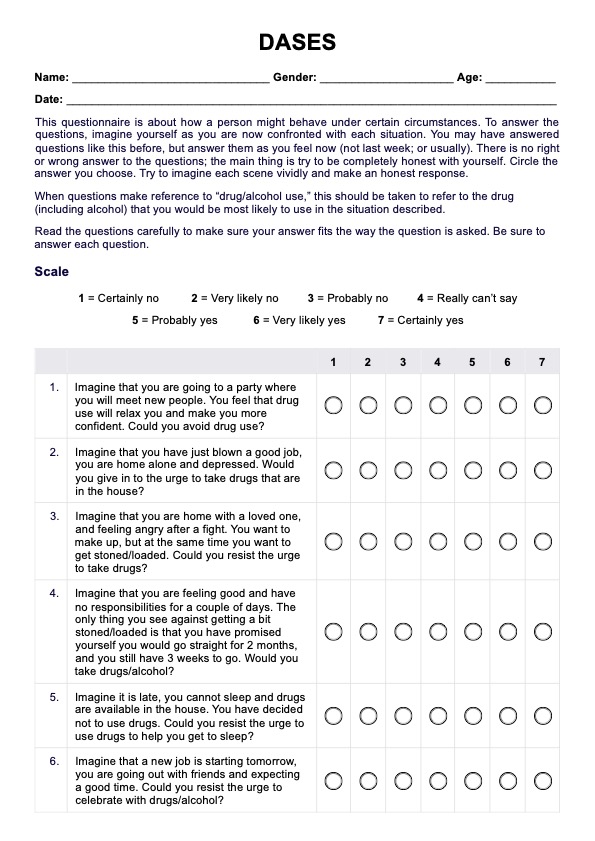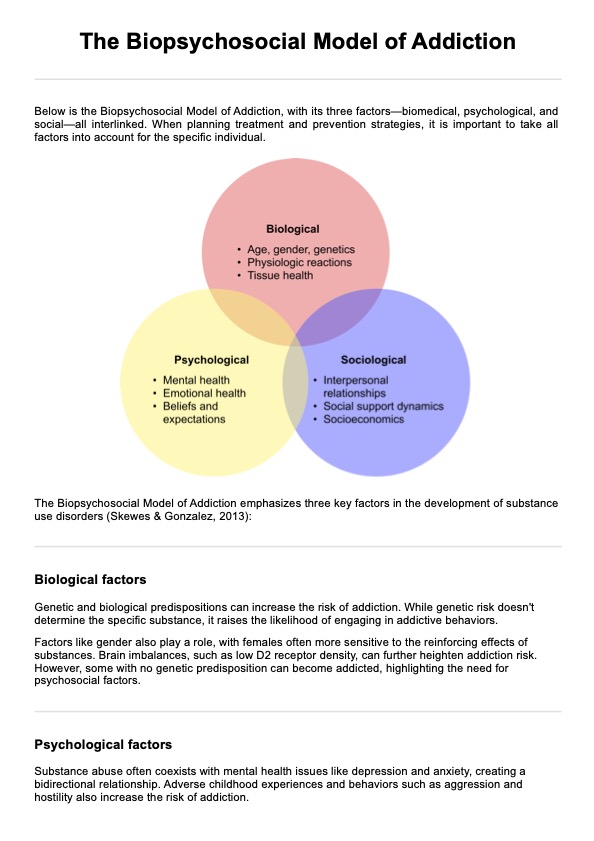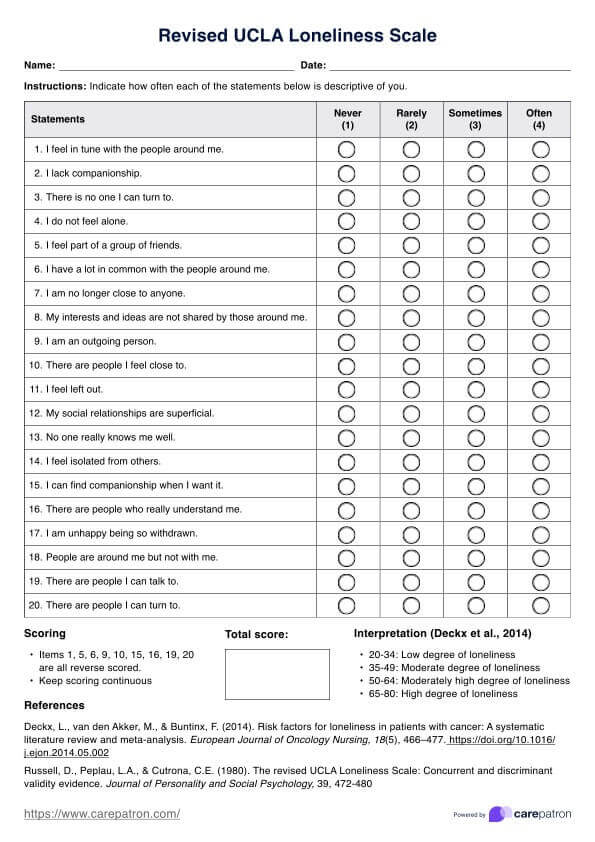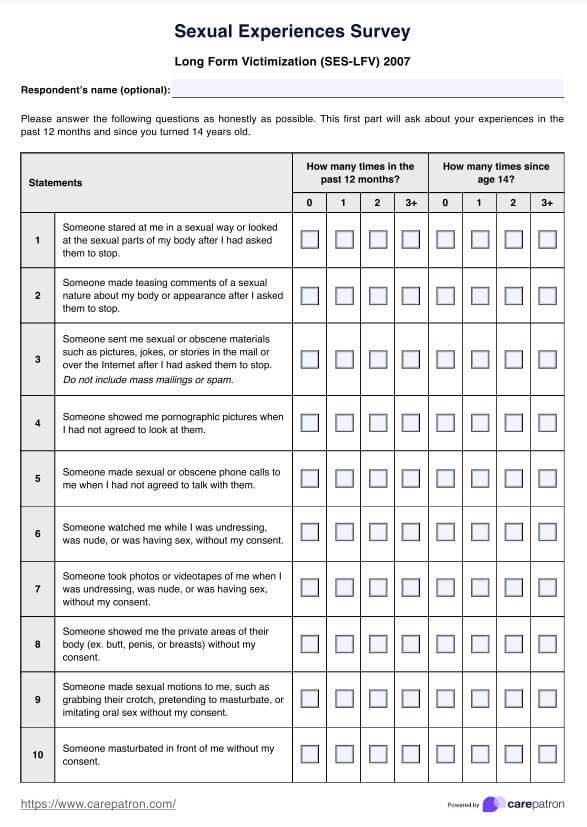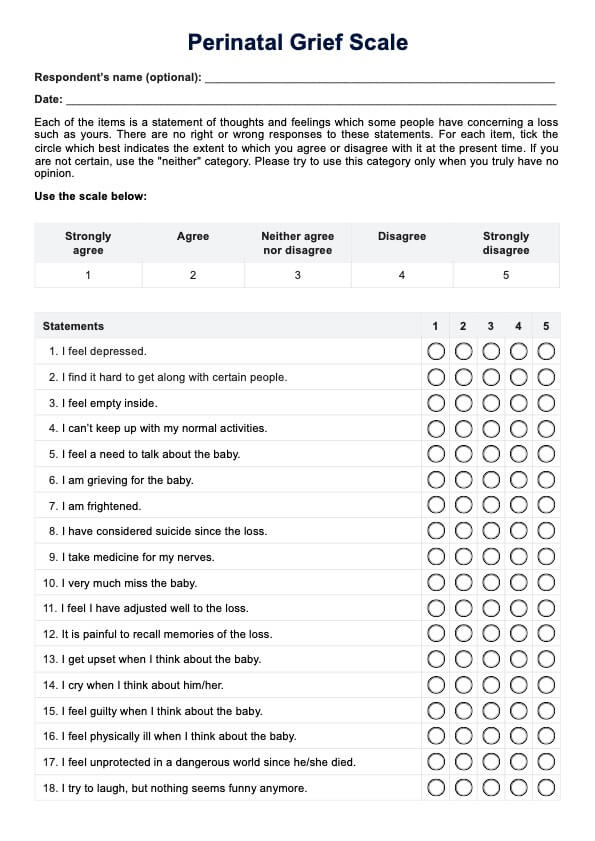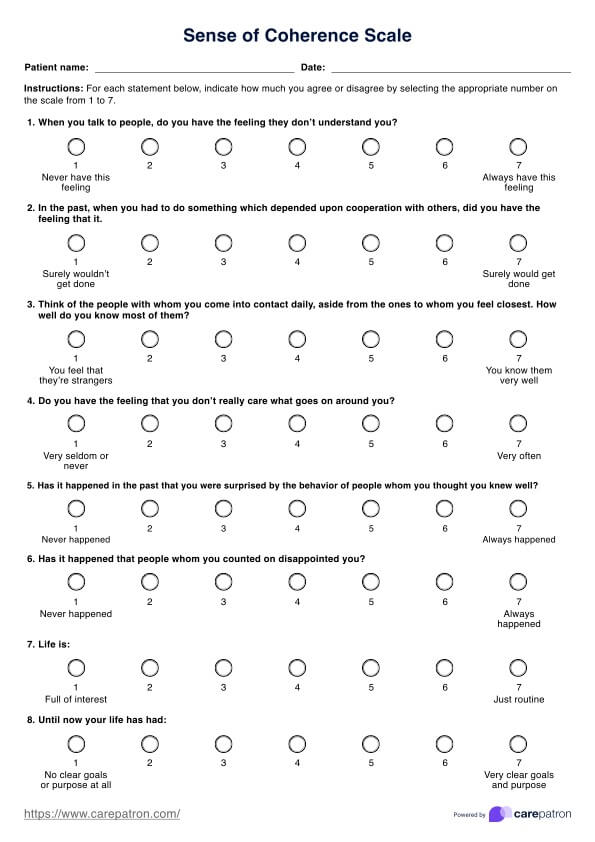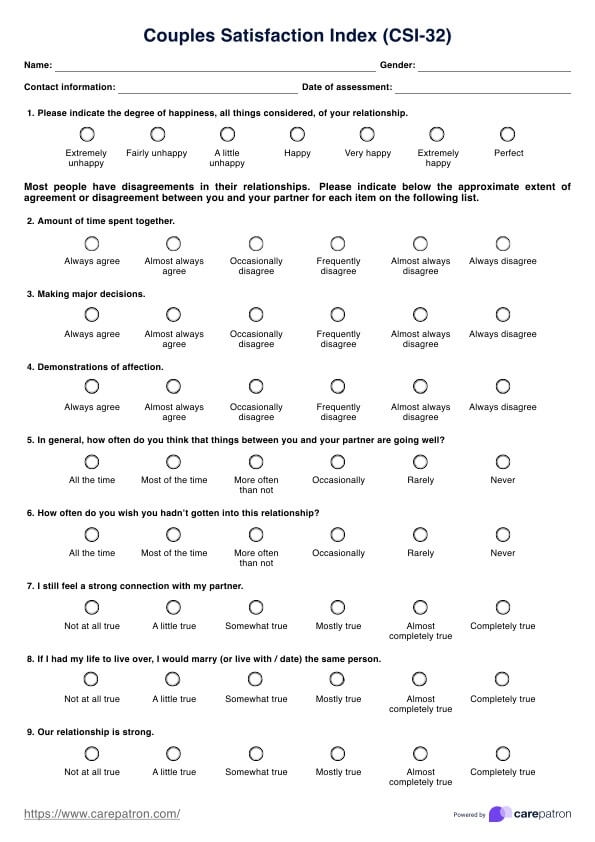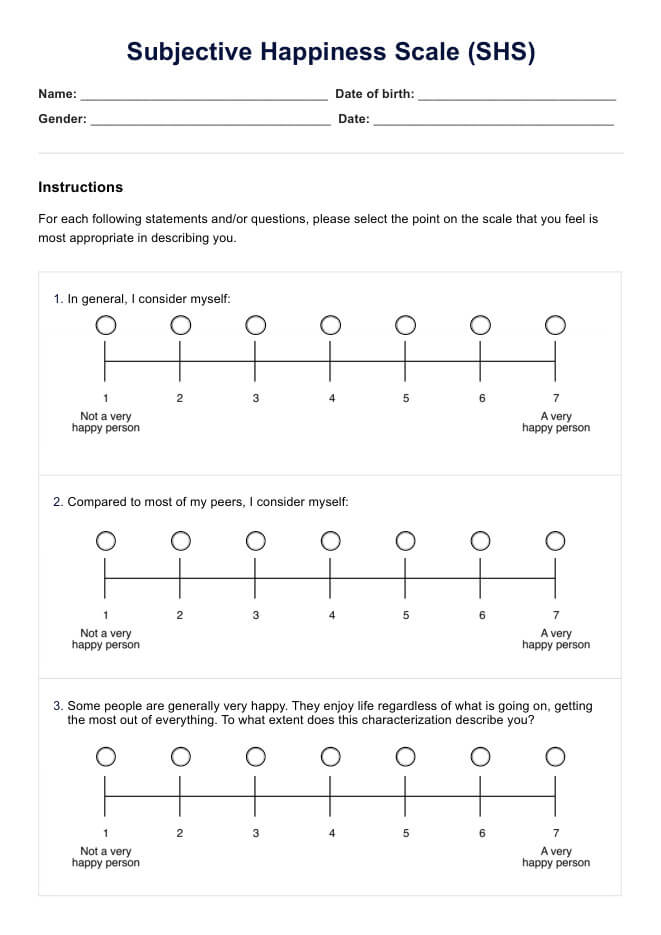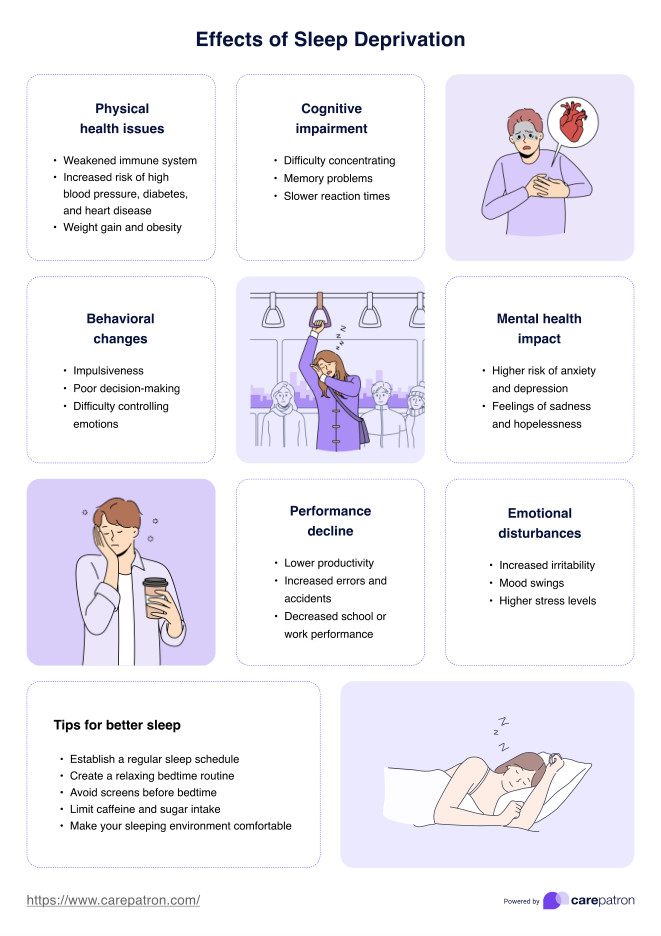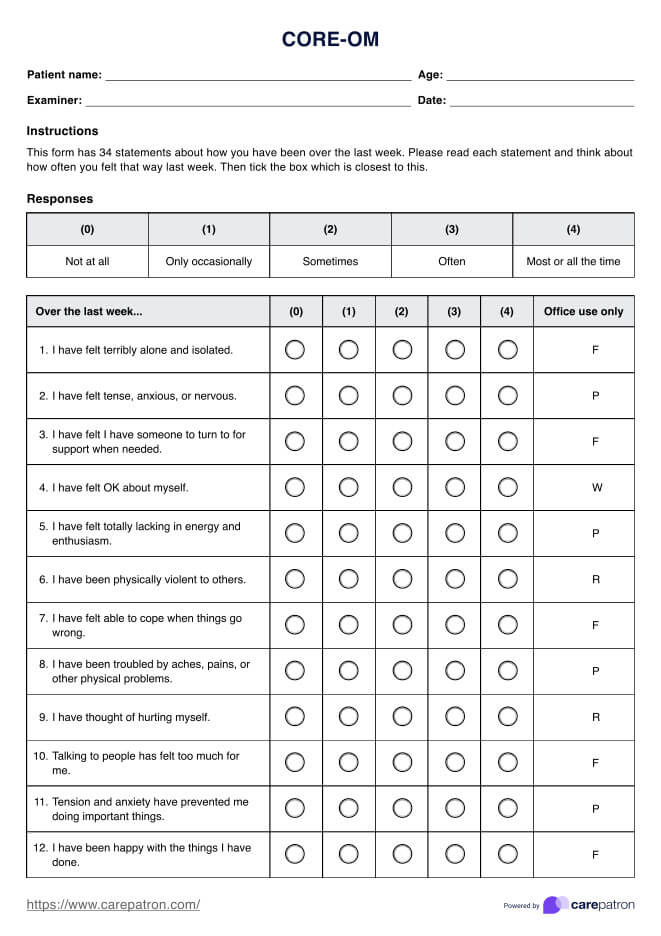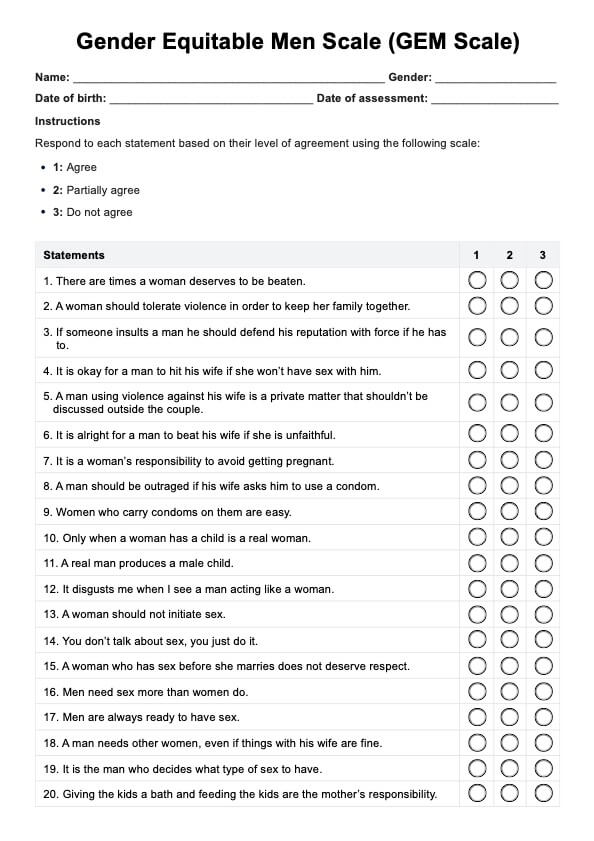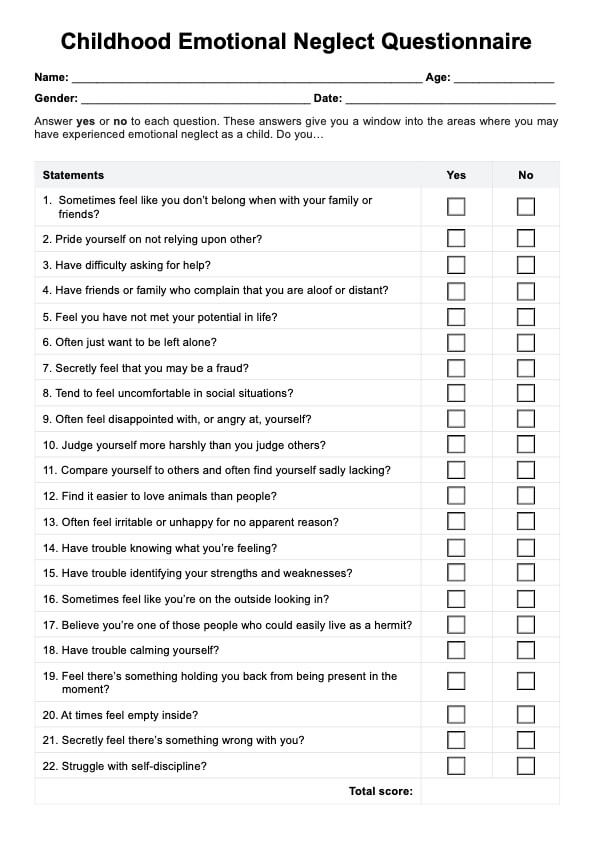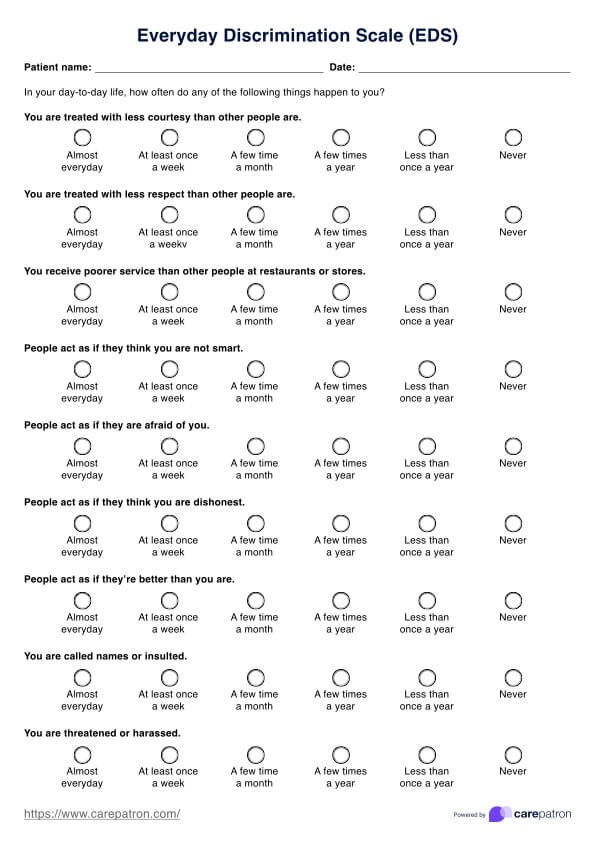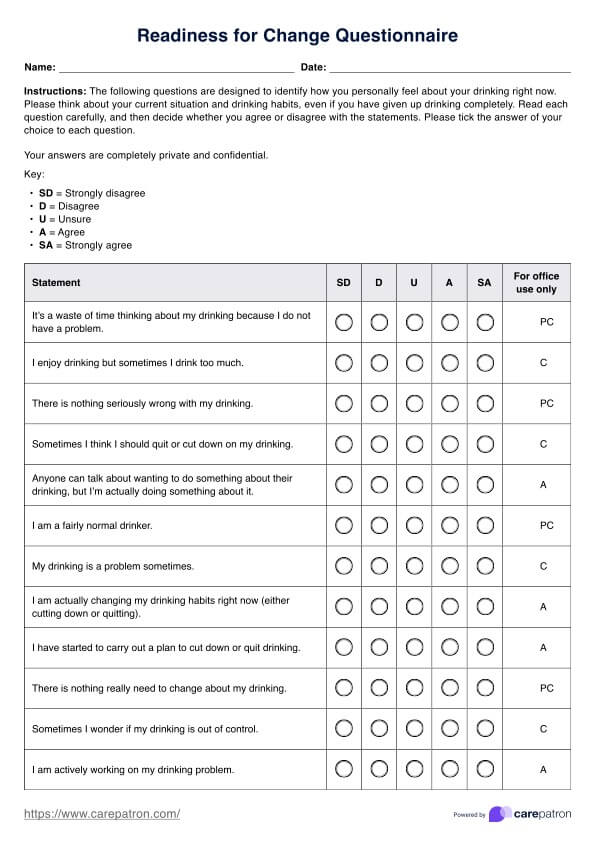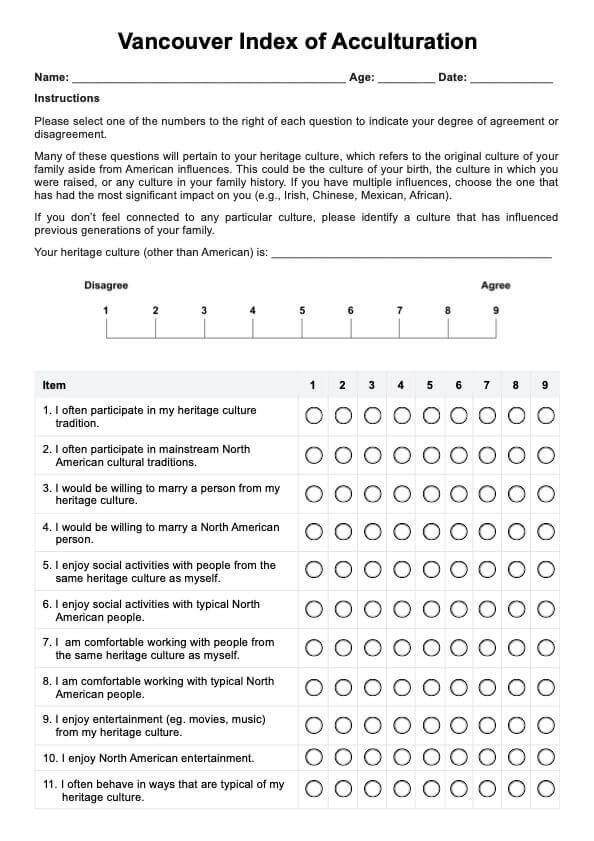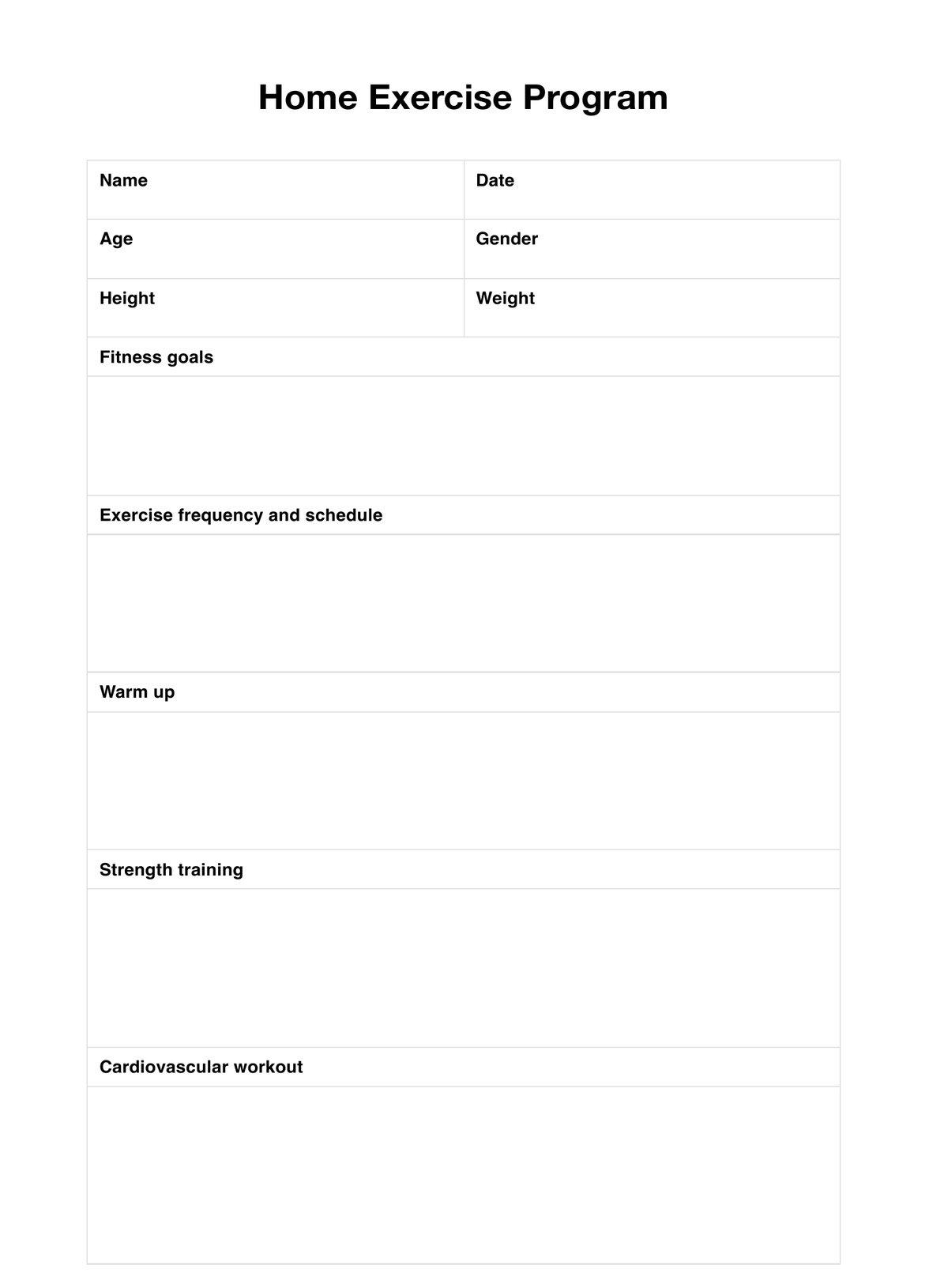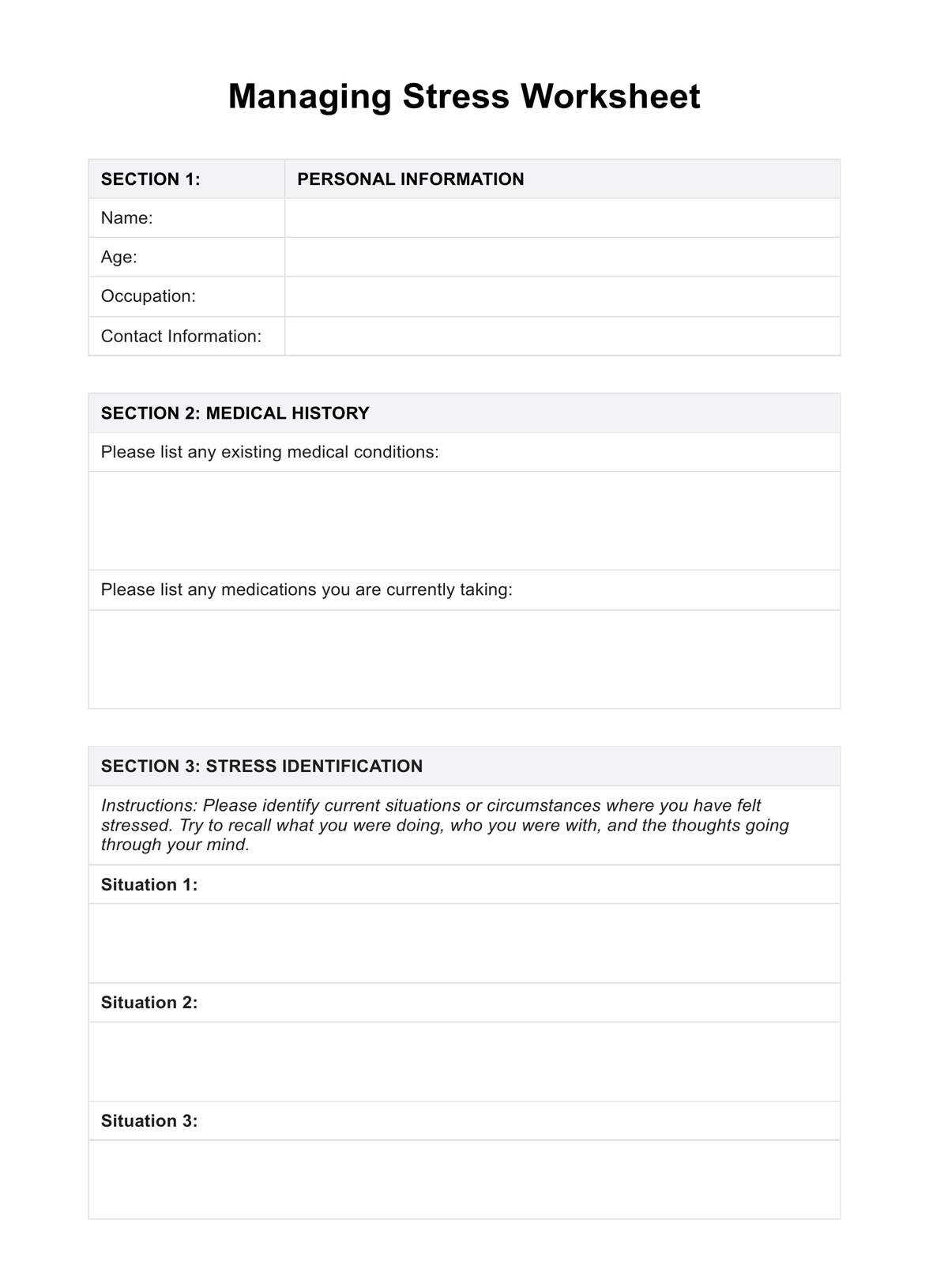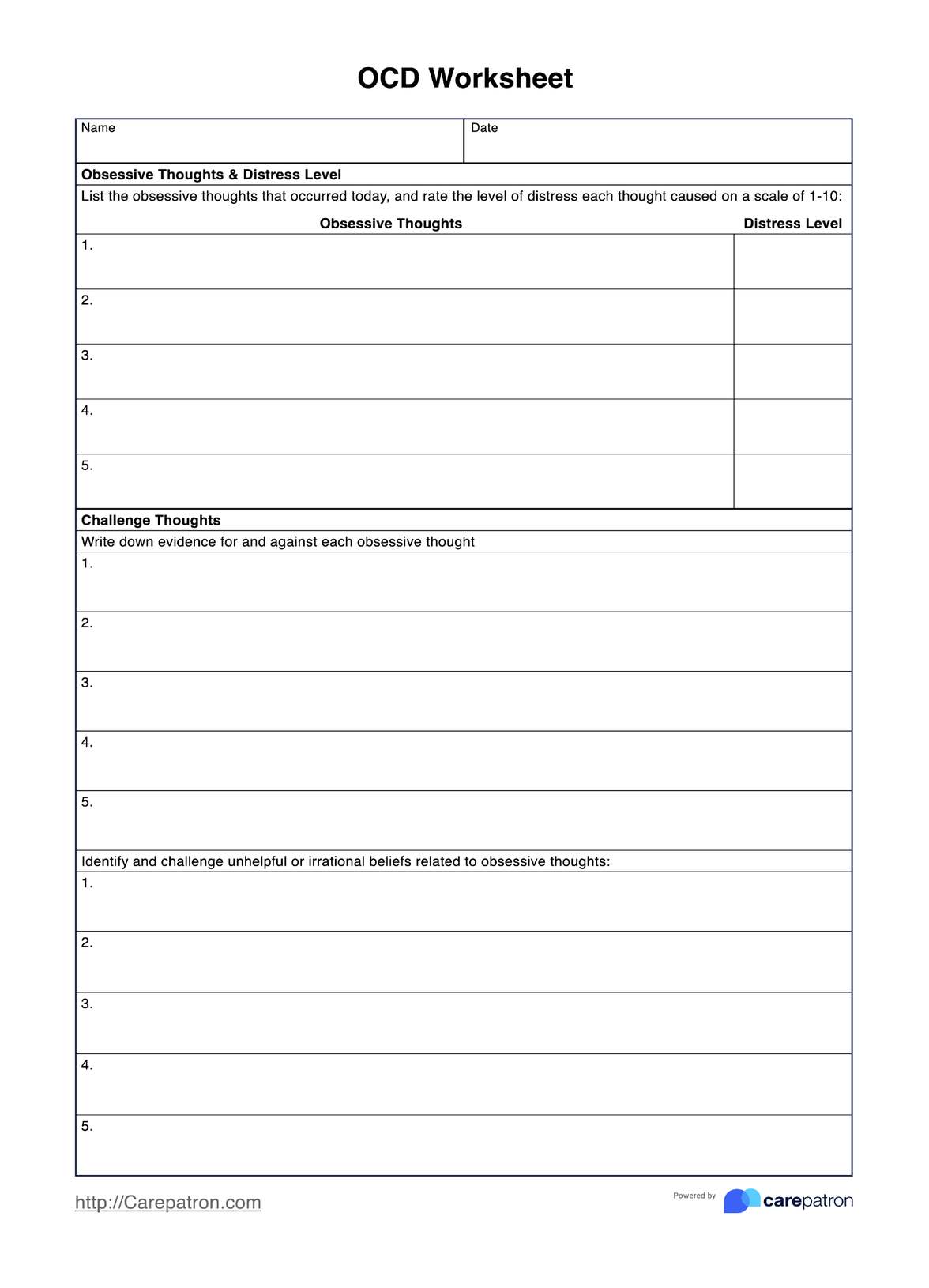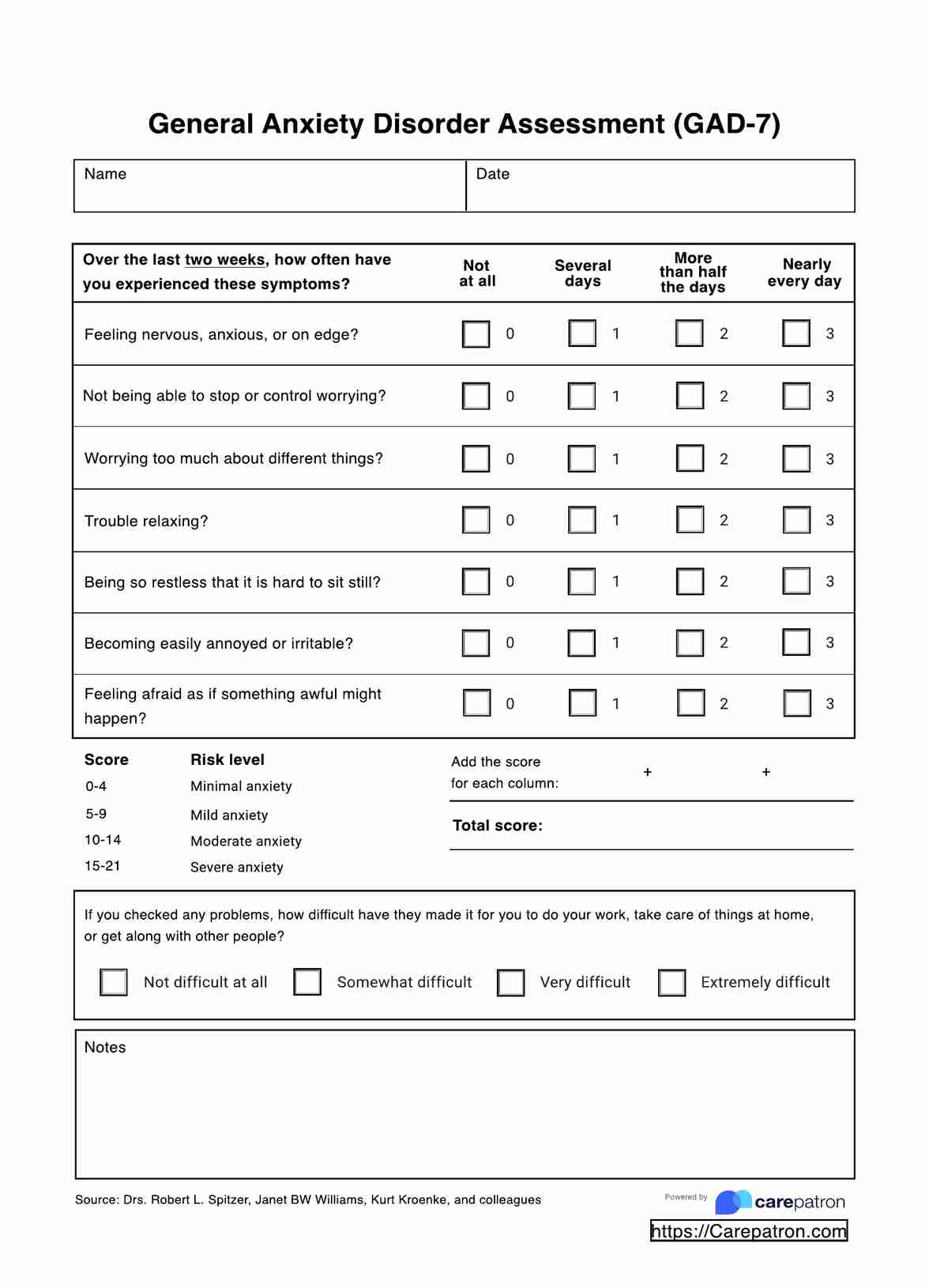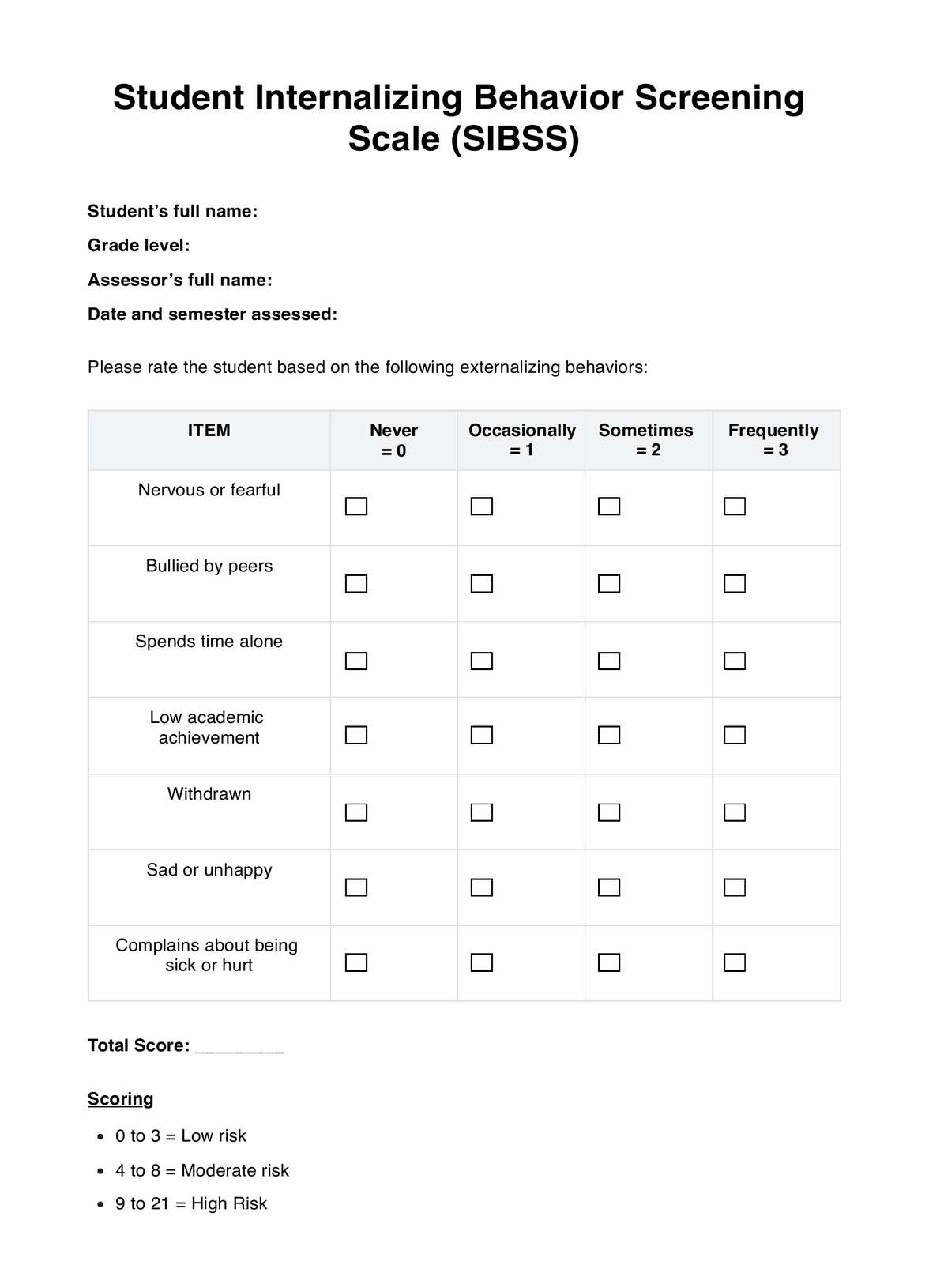Drug Attitude Inventory (DAI-30)
Use the Drug Attitude Inventory (DAI-30) to evaluate patient sentiments on medications, fostering improved understanding and compliance. Learn more with Carepatron.


What is the Drug Attitude Inventory (DAI-30)?
The Drug Attitude Inventory (DAI-30) is an assessment instrument for evaluating patients' perspectives on their prescribed drug regimens. Comprising 30 meticulously designed questions, the DAI-30 delves into the nuances of a patient's views on medication, such as its effectiveness, potential side effects, and overarching benefits. An individual's perception of their medications is paramount in determining their adherence level. This adherence is not a mere act of taking drugs but is linked with the overall success rate of a treatment regimen.
Understanding patients' mindsets can differentiate between effective symptom management and suboptimal treatment results. This is especially pronounced in mental health. Here, how one perceives their medications can be the linchpin deciding the balance between alleviated symptoms and compromised quality of life.
The DAI-30 isn't just a clinical tool; its implications also span research settings, bridging the gap between empirical study and real-world applications. Its significance in gleaning insights into patients' attitudes has rendered it indispensable in myriad healthcare scenarios. For those seeking a deeper exploration of the and its transformative impact on healthcare, Carepatron's electronic health records serve as a comprehensive resource.
Drug Attitude Inventory (DAI-30) Template
Drug Attitude Inventory (DAI-30) Example
How to use the Drug Attitude Inventory (DAI-30)
Our Printable Drug Attitude Inventory (DAI-30) mirrors patients' beliefs, expectations, and reservations about their drug therapies. With simplicity in its structure and depth in its insights, the DAI-30 is invaluable for healthcare professionals. It can drastically enhance patient care and guide clinical decisions when deployed correctly. Below is a step-by-step guide to employing the Drug Attitude Inventory (DAI-30) effectively:
Step 1: Preparation
Before administering the DAI-30, create an ambiance conducive to introspection. Choose a serene environment where the patient can ponder and respond to the questions without disturbances. This step is vital to ensure authentic and thoughtful responses.
Step 2: Explanation
Begin by elucidating the intent behind the Drug Attitude Inventory (DAI-30). It's crucial to instill confidence in the patient, assuring them of the confidentiality of their responses. This clarity and assurance can pave the way for genuine feedback.
Step 3: Distribution
With the stage set and the patient briefed, present them with the DAI-30 questionnaire. Encourage them to read each item carefully and answer as honestly as possible, emphasizing that there are no right or wrong responses.
Step 4: Evaluation
After the patient has completed the questionnaire, it's time to decode their responses. Utilize the 'drug attitude inventory scoring' system to assign values to each answer. This systematic approach ensures that the insights derived are both quantitative and qualitative.
Step 5: Interpretation
The scored results are more than mere numbers; they are windows into the patient's psyche. Scrutinize and interpret these scores to comprehend the patient's attitude, concerns, and beliefs regarding their drug therapy. This analysis will offer a holistic view of the patient's mindset, aiding healthcare professionals in tailoring personalized care plans.
When would you use this Drug Attitude Inventory (DAI-30)?
The Drug Attitude Inventory (DAI-30) is essential for healthcare professionals to comprehend patients' perspectives on medication therapies. Identifying the opportune moments to leverage this tool can amplify its efficacy. Here are the optimal times and contexts:
- Beginning of Therapy: Uncovering their initial perceptions and apprehensions is crucial as patients start their therapeutic journey. Setting a foundation of mutual understanding ensures a smoother, more collaborative treatment progression.
- Medication Adjustments: Patients' feelings and beliefs can shift, whether it's a tweak in dosage or a full medication switch. Using the DAI-30 during these transitions helps address any evolving concerns or misconceptions.
- Adherence Concerns: If there's a noticeable dip in medication adherence or commitment, the DAI-30 can explain the reasons. Identifying these underlying concerns can prevent potential therapeutic setbacks and improve patient outcomes.
- Relevance in Psychiatry and Psychology: Understanding a patient's mindset is paramount for specialists like psychiatrists and psychologists. The DAI-30 allows these professionals to customize therapy plans, enhance patient education, and contemplate alternative treatment paths.
The Drug Attitude Inventory (DAI-30) acts as a compass, guiding healthcare professionals toward an in-depth understanding of patients' feelings and beliefs about their medications, ensuring comprehensive and tailored care.
What are the benefits of using this Drug Attitude Inventory (DAI-30)?
Improved Medication Adherence
The DAI-30 can identify potential barriers to medication adherence, allowing for targeted interventions.
Personalized Treatment Approaches
With insights from our Free Drug Attitude Inventory (DAI-30), healthcare professionals can better tailor their treatment strategies.
Enhanced Patient-Doctor Communication
Discussing the results opens lines of communication about drug therapy perceptions.
Informed Decision Making
Clinicians can make more informed decisions regarding therapy adjustments.
Professionals can access our Free Drug Attitude Inventory (DAI-30) and utilize it in practice for a more comprehensive assessment.
Commonly asked questions
Typically, it takes about 10-15 minutes, depending on the patient's speed.
The scores reflect the patient's attitude, with higher scores indicating a more positive attitude toward their medications.
It's primarily used in clinical settings when assessing a patient's attitude toward their medication, especially in mental health contexts.
Healthcare professionals, primarily psychiatrists, and psychologists, use the DAI-30.

.jpg)
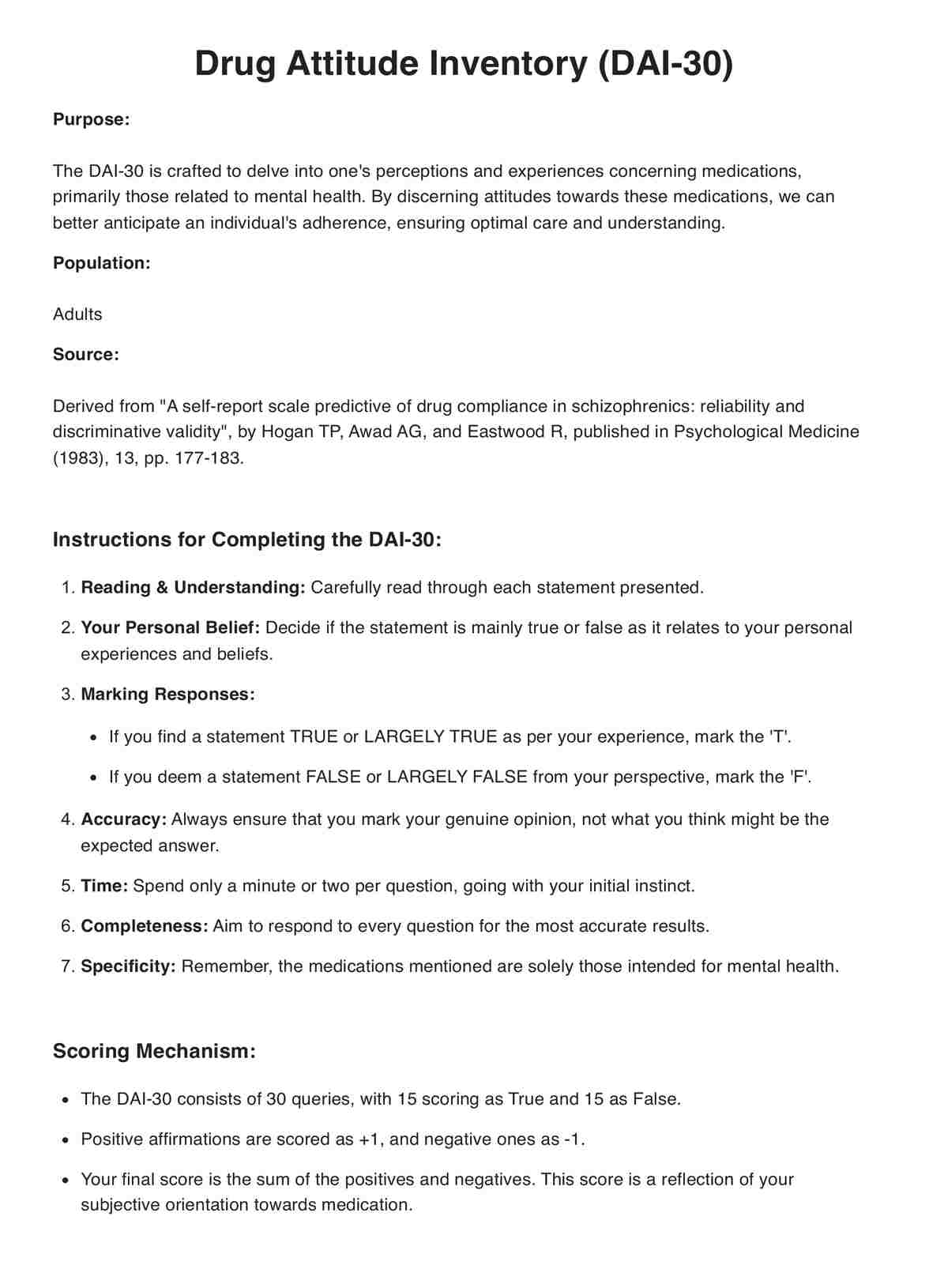
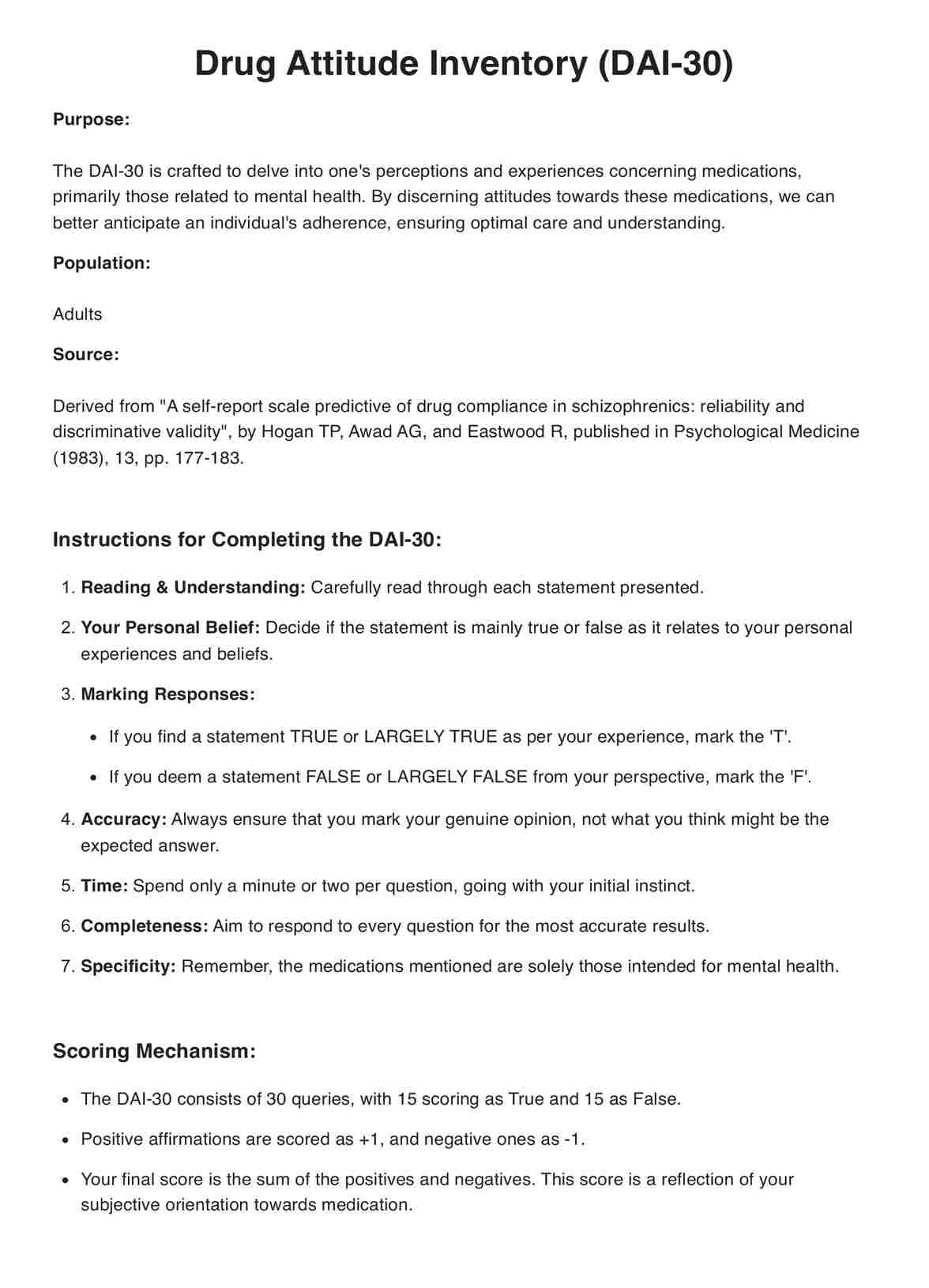

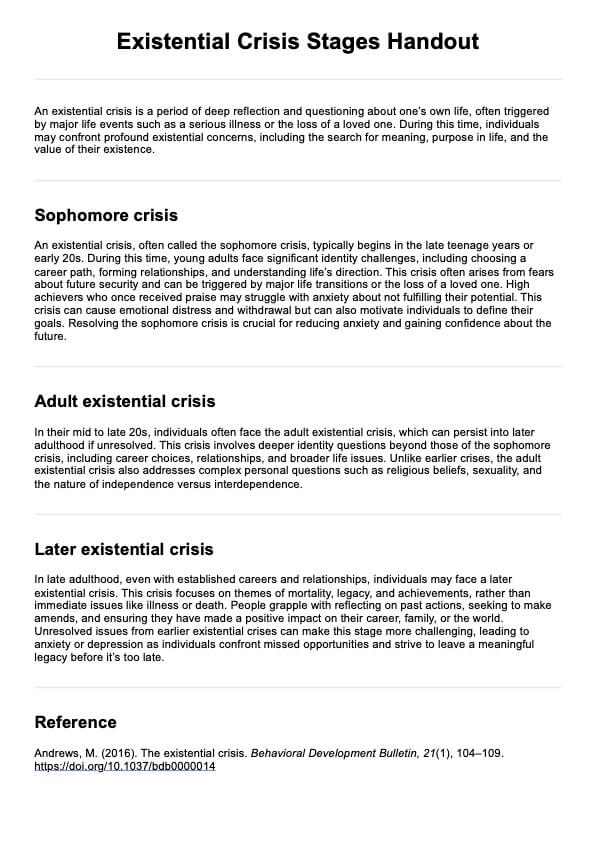
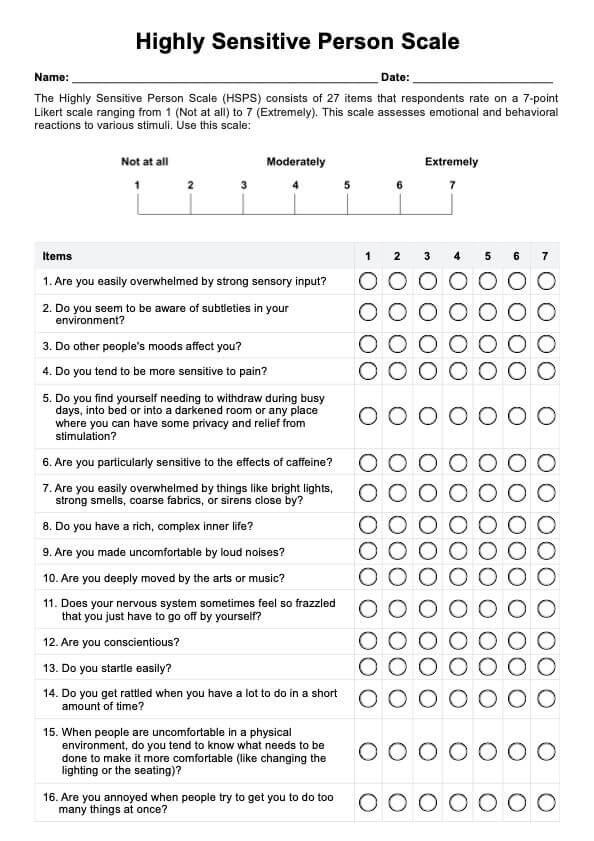










-template.jpg)


